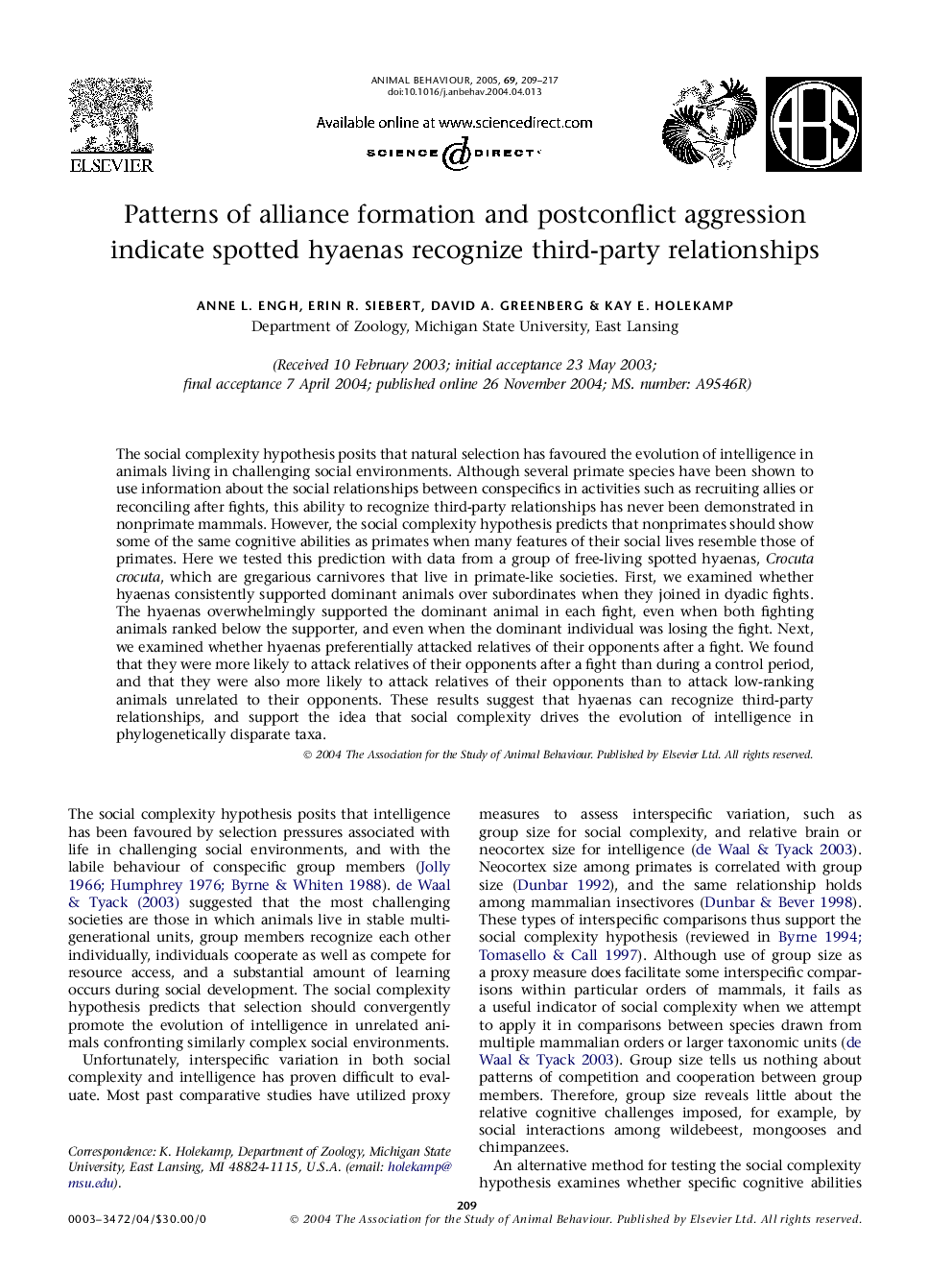| کد مقاله | کد نشریه | سال انتشار | مقاله انگلیسی | نسخه تمام متن |
|---|---|---|---|---|
| 8972441 | 1104389 | 2005 | 9 صفحه PDF | دانلود رایگان |
عنوان انگلیسی مقاله ISI
Patterns of alliance formation and postconflict aggression indicate spotted hyaenas recognize third-party relationships
دانلود مقاله + سفارش ترجمه
دانلود مقاله ISI انگلیسی
رایگان برای ایرانیان
موضوعات مرتبط
علوم زیستی و بیوفناوری
علوم کشاورزی و بیولوژیک
علوم دامی و جانورشناسی
پیش نمایش صفحه اول مقاله

چکیده انگلیسی
The social complexity hypothesis posits that natural selection has favoured the evolution of intelligence in animals living in challenging social environments. Although several primate species have been shown to use information about the social relationships between conspecifics in activities such as recruiting allies or reconciling after fights, this ability to recognize third-party relationships has never been demonstrated in nonprimate mammals. However, the social complexity hypothesis predicts that nonprimates should show some of the same cognitive abilities as primates when many features of their social lives resemble those of primates. Here we tested this prediction with data from a group of free-living spotted hyaenas, Crocuta crocuta, which are gregarious carnivores that live in primate-like societies. First, we examined whether hyaenas consistently supported dominant animals over subordinates when they joined in dyadic fights. The hyaenas overwhelmingly supported the dominant animal in each fight, even when both fighting animals ranked below the supporter, and even when the dominant individual was losing the fight. Next, we examined whether hyaenas preferentially attacked relatives of their opponents after a fight. We found that they were more likely to attack relatives of their opponents after a fight than during a control period, and that they were also more likely to attack relatives of their opponents than to attack low-ranking animals unrelated to their opponents. These results suggest that hyaenas can recognize third-party relationships, and support the idea that social complexity drives the evolution of intelligence in phylogenetically disparate taxa.
ناشر
Database: Elsevier - ScienceDirect (ساینس دایرکت)
Journal: Animal Behaviour - Volume 69, Issue 1, January 2005, Pages 209-217
Journal: Animal Behaviour - Volume 69, Issue 1, January 2005, Pages 209-217
نویسندگان
Anne L. Engh, Erin R. Siebert, David A. Greenberg, Kay E. Holekamp,